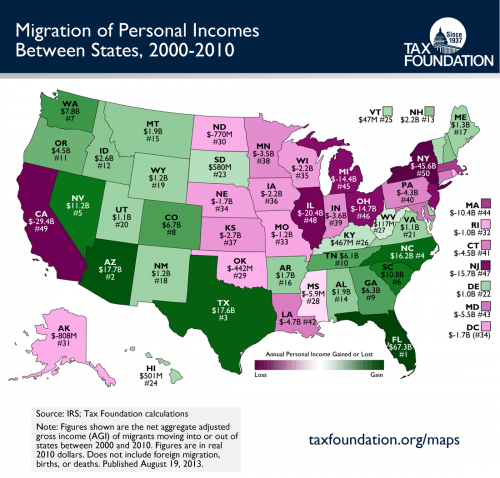If I Were a Billionaire: Coyote College
My daughter and I did the whole college visit thing last week -- 8 colleges in five days. In doing so, I was struck by the fact that all these great schools we visited, with one exception, were founded by rich people no more recently than the 19th century. Seriously, can you name a college top students are trying to get into that was founded since 1900? I think Rice University in Houston was founded in the 20th century but it is still over 100 years old.
The one exception, by the way, was SCAD, an art school in Savannah, Georgia. SCAD is new enough that it is still being run by its founder. I am not sure I am totally comfortable in the value proposition of an expensive art school, but I will say that this was -- by far -- the most dynamic school we visited.
So here is what I would do: Create a new not-for-profit university aimed at competing at the top levels, e.g. with the Ivy League. I would find a nice bit of land for it in a good climate, avoiding big cities. The Big Island of Hawaii would be a nice spot, though that may be too remote. Scottsdale would not be a bad choice since its bad weather is during the summer out of the normal school year and land is relatively cheap.
Then, I would take the top academic kids, period. No special breaks for athletes or tuba players. It would have some reasonable school non-academic programs just to remain competitive for students - maybe some intramurals or club sports, but certainly no focus on powerhouse athletics. We could set a pool of money aside to help fund clubs and let students drive and run most of the extra-curriculars, from singing groups to debate clubs. If students are passionate enough to form and lead these activities, they would happen.
And now I need a reader promise here - if you are going to read the next sentence, you have to read the whole rest of the article before flying into any tizzies.
And for the most part we would scrap affirmative action and diversity goals. We are going to take the best students. This does not mean its pure SAT's - one can certainly look at a transcript and SAT in the context of the school kids went to, so that smart kids are not punished for going to a crap public high school.
Realize I say this with the expectation that the largest group of students who will be getting affirmative action over the next 20 years are... white males.
What? How can this be? Well it is already nearly true. Sure, historically everyone has focused on reverse discrimination against white males when colleges were dealing with having twice as many men than women and they had few qualified black or hispanic candidates. But my sense is that few white males any more lose their spot in college due to competition from under-qualified minority candidates.
That is because there is an enormous demographic shift going on in college. In fact there are three:
- Girls rule high school and higher education. Yes, I know that women steeped in "Failing at Fairness" will find this hard to believe, but undergraduates are something like 56% women nowadays. As we toured Ivy League schools, we were on tours with about 6 prospective female students for every one guy. Back when my son played high school basketball, on the walls of various high schools he played at were pictures of their honor societies. Time and again I saw pictures of 20 girls and one or two forlorn boys. If top schools want to keep their gender numbers even, then they are going to have to start affirmative action for boys, if they have not done so already (I suspect they have).
- Asians are being actively discriminated against. Schools will never ever admit it, because they are getting sued by Asian prospective students (I know Princeton has been sued) but reverse discrimination against Asian students is becoming more and more intense. The bar for Asia females already is way higher than the bar for white males in top schools, and it likely will only get worse
- Foreign students bring in the cash. Ivy League schools have a ton of international students, which makes sense as they strive to be international institutions. But one thing they will not tell you is that there is another reason for bringing in foreign students: For most schools, their need-blind admissions policies and increasingly generous financial aid packages do not apply to foreign students, or apply on a much more limited basis. The average tuition paid by international students is thus much higher. I suspect, but cannot prove, that under the cover of diversity these schools are lowering their standards to bring in students who bring the cash.
So we scrap all this. If the school ends up 80% Asian women, fine. Every forum in one's life does not have to have perfect diversity (whatever the hell that is), and besides there are plenty of other market choices for students who are seeking different racial and ethnic mixes in their college experience. We just want the best. And whatever money we can raise, we make sure a lot of it goes to financial aid rather than prettier buildings (have you seen what they are building at colleges these days?) so we can make sure the best can afford to attend. Getting good faculty might be the challenge at first, but tenure tracks have dried up so many places that my gut feel is that there are plenty of great folks out there who can't get tenure where they are and would jump at a chance to move. You won't have Paul Krugman or Bill McKibben type names at first, but is that so bad?
We know the business community hires from Ivy League schools in part because they can essentially outsource their applicant screening to the University admissions office. So we will go them one better and really sell this. Hire any of our graduates and you know you are getting someone hard-working and focused and very smart.
I don't know if it would work, but hell, I am a billionaire, what's the risk in trying?








